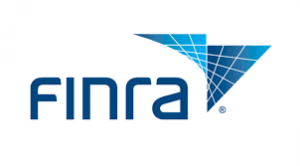
This is a classic case of buyer’s remorse. In the case at hand, FA Jeffrey Mohlman settled with FINRA by executing a letter of Acceptance, Waiver and Consent (called an AWC) and, in so doing, agreed to a bar from the securities industry. Apparently displeased with his decision, he filed an action in court seeking almost $900,000 in damages by claiming that FINRA “committed fraud by inducing Plaintiff to fail to testify at a second disciplinary interview, thus allegedly fraudulently avoiding an alleged requirement that Defendants consider mitigating factors in the Plaintiff’s disciplinary case…” Mohlman’s claims received a chilly reception by the U.S. District Court for the Southern District of Ohio (Mohlman v. FINRA, et al., Case No. 19-cv-154), which granted FINRA’s motion to dismiss on February 24, 2020.
Background
Mohlman entered the securities industry in 2001. In March 2015, Mohlman’s then-employer, Questar Capital Corporation, terminated his registration and filed a Form U5 claiming that Mohlman “resigned while under internal review for failure to follow firm policies and procedures regarding his participation in private securities transactions.” FINRA then launched an investigation and requested his appearance at an on-the-record interview (OTR) on September 11, 2015. On September 9, 2015, Mohlman’s lawyer informed FINRA that Mohlman received the OTR request but would be declining to appear. On September 17, 2015, Mohlman signed an AWC in which he agreed to a bar from the securities industry and waived various procedural rights.
Court Challenge
The essence of Mohlman’s claims against FINRA were summarized by the Court:
“Plaintiff complains that in entering into the AWC, FINRA allegedly failed to consider mitigating factors such as the death of a friend, the suicide of his brother-in-law and his own medications and medical history. He argues that the failure to consider these factors somehow led FINRA to fraudulently induce him to accept a bar from the securities industry. As result, Plaintiff seeks $891,000 in damages (legal fees, residual fees for lost business opportunities, reputational rehabilitation specialist fees, therapy fees, and punitive damages) against FINRA and Defendants Schroeder and Brown.”
The judge was not impressed by Mohlman’s arguments. The court held that Mohlman should have exhausted his administrative remedies (meaning, Mohlman should have rejected FINRA’s settlement offer and asserted his defenses before FINRA’s Office of Hearing Officers) instead of settling with FINRA and then later complaining about the settlement. According to the court:
“Plaintiff had the opportunity to litigate a FINRA disciplinary complaint and subsequently seek administrative review of any result at the SEC and thereafter in a United States Court of Appeals, which were the administrative remedies available to him under the Exchange Act. Instead, he accepted a settlement resulting in a bar from the securities industry, and he expressly waived his right to administrative review. Plaintiff cannot now ask this Court to reconsider the decision he made, while represented by counsel, several years ago.”
This case highlights the finality associated with a decision to sign an AWC. Before doing so, FA’s would be wise to carefully consider their rights upon consultation with experienced counsel.
Herskovits PLLC has a nationwide practice representing individuals and entities under investigation by FINRA, the SEC and the CFTC. Feel free to call us at 212-897-5410 for a consultation.
 FINRA Lawyer Blog
FINRA Lawyer Blog

